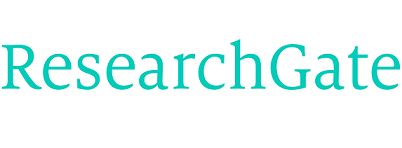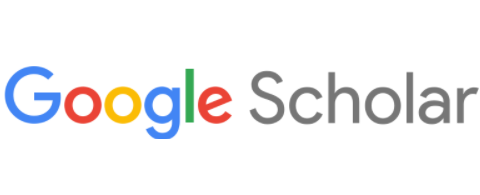Abstract: This study determined the extent of perceived self-efficacy and school-level psychosocial environment among college instructors at higher education institutions in Sulu during school year 2018-2019 and the significant relationship and differences in categories subsumed under these components when data are grouped according to age, gender, civil status, length of service, academic rank, highest educational qualification and type of higher education institution. This study answered the research questions based on the following hypotheses: (1) There is no significant relationship between teacher’s perceived school-level psychosocial environment and self-efficacy at higher education institutions in Sulu; (2) There is no significant difference in teacher’s perceived self-efficacy at higher education Institutions in Sulu when data are grouped according to: Age; Gender; Length of service; Academic rank; Educational Qualification; Employment status; and Type of HEI. (3) There is no significant difference in teacher’s perceived school-level psychosocial environment at higher education Institutions in Sulu when data are grouped according to: Age; Gender; Length of service; Academic rank; Educational Qualification; Employment status; and Type of HEI. This study employed the descriptive-quantitative research design with 200 college instructors at higher education institutions in Sulu during the school year 2018-2019. The frequency counts and percentage score were used to determine the socio-demographic profiles; mean and standard deviation were used to determine the extent of teaching efficacy and school-level psychosocial environment. The t-Test for independent samples, One-Way ANOVA and Pearson Correlation Coefficient were used to determine the significant differences and degree of correlation of these variables. This following are findings of the study:
- On students’ demographic profile: 1. In terms of age, 40.5% of the instructors belong to age range of 31-40 years old; 1.2. In terms of gender, female college instructors constitute 55.0% while their male counterparts constitute 45.0% of the total 200 samples; 1.3. In terms of length of service, 47.0% have 10 years & below years of experience; 1.4. In terms of academic rank, 45.5% are Instructor (I, II, and III); constitutes, constitutes 51.20% are Teacher I. 1.5. In terms of highest educational attainment, 30.0% are having AB/BS + MA/MS Units; 1.6. In terms of employment status, 29.5% are contractual/job order and 44.0% with permanent status; and 1.7. In terms of type of HEI, 68.5% are public higher education institutions.
- On extent of Teachers’ self-efficacy: 1 On Efficacy for Student Engagement – instructors rated this category as Moderate Extent, 2.2 On Instructional strategies - instructors rated this category as Moderate Extent, 2.3 On Personal Teaching Efficacy - instructors rated this category as Moderate Extent.
- On Extent of School-level Psychosocial environment: 1 On Relationship Dimension - instructors rated this category as High Extent, 3.2 On Personal Development Dimension – instructors rated this category as High Extent, 3.3 On System Maintenance/System Change Dimension - instructors rated this category as High Extent.
- On Correlation between Teachers’ Self-Efficacy and School-Level Psychosocial environment: 1 there is “Near Zero Correlation” between teachers’ self-efficacy and school-level psychosocial environment.
- On differences in Teachers’ Self-Efficacy: 1 By Age, There is significant difference in teacher’s perceived self-efficacy at higher education institutions in Sulu when data are grouped according to Age; Age 30 years & below are better perceivers of the extent of teaching efficacy in terms of student engagement; but age 21 years & above are better perceivers extent of teaching efficacy in terms of personal teaching efficacy, 5.2 By Gender, No significant difference in teacher’s perceived self-efficacy at higher education institutions in Sulu when data are grouped according to gender, 5.3 By Length of Service, There is significant difference in teacher’s perceived self-efficacy at higher education institutions in Sulu when data are grouped according to length of service. Instructors with 21 years & above of teaching experience are better perceivers the extent of teaching efficacy in terms of student engagement, 5.4 By Academic Rank, There is significant difference in teacher’s perceived self-efficacy at higher education institutions in Sulu when data are grouped according to academic rank. Instructors with academic rank of a Prof. (I, II, III, IV, V, and VI) are better perceivers of the extent of teaching efficacy in terms of student engagement, 5.5 By Educational Attainment, No significant difference in teacher’s perceived self-efficacy at higher education institutions in Sulu when data are grouped according to educational attainment. 5.6 By Employment Status, There is significant difference in teacher’s perceived self-efficacy at higher education institutions in Sulu when data are grouped according to employment status. Instructors with permanent status of appointment are better perceivers of extent of teaching efficacy in terms of student engagement; instructional strategies and personal teaching efficacy, 5.7 By Type of HEI, There is significant difference in teacher’s perceived self-efficacy at higher education institutions in Sulu when data are grouped according to type of higher educational institution.
- Difference in School-level Psychosocial Environment: 1 By Age, There is significant difference in school-level psychosocial environment at higher education institutions in Sulu when data are grouped according to Age. With 30 years and below of age better perceivers of the extent of school-level psychosocial environment in terms of relationship dimension, personal development dimension and System Maintenance, 6.2 By Gender, There is significant difference in teacher’s perceived school-level psychosocial environment at higher education institutions in Sulu when data are grouped according to gender. 6.3 By Length of service, there is significant difference in teacher’s perceived school-level psychosocial environment at higher education institutions in Sulu when data are grouped according to length of service. With 10 years & below of length are better perceivers of the extent of school-level psychosocial environment in terms of relationship dimension, personal development dimension and System Maintenance, 6.4 By Academic Rank, No significant difference in teacher’s perceived school-level psychosocial environment at higher education institutions in Sulu when data are grouped according to academic rank, 6.5 By Educational Qualification, No significant difference in teacher’s perceived school-level psychosocial environment at higher education institutions in Sulu when data are grouped according to educational attainment, 6.6 By Employment Status, There is significant difference in teacher’s perceived school-level psychosocial environment at higher education institutions in Sulu when data are grouped according to employment status. Contractual/Job Order status of appointment are better perceivers of the extent of school-level psychosocial environment in terms of relationship dimension and System Maintenance, 6.7 By Type of HEI, There is significant difference in teacher’s perceived school-level psychosocial environment at higher education institutions in Sulu when data are grouped according to type of higher educational institution. I is concluded that respondents of this study are at age range of 31-40 years old; majority are female, have 10 years & below years of experience; Instructor (I, II, and III); having AB/BS + MA/MS Units; permanent status; and at public higher education institutions.
Teachers’ self-efficacy is moderately rated, while school-level psychosocial environment rated as high extent with Near Zero Correlation between them. Yet, educational attainment, academic rank and gender have no influence on respondents’ perceptions towards teachers’ self-efficacy and school-level psychosocial environment. This particular study seems to support Bandura’s (1989) Efficacy Theory when he stressed that the perceived self-efficacy or memory functioning is an important facet of meta-memory. Self-beliefs or efficacy can enhance or impair performance through their effects on cognitive, effective, or motivational intervening. Moreover, Bandura (1989) said that the psychosocial learning environment covers psychological and social factors that have consequences for satisfaction, health and ability to perform at learning places. The term psychosocial aspects of our experiences (e.g. our thoughts, emotions and behaviors) and our wider social experience (e.g. our relationships, tradition and culture). Learners and teachers are psychologically affected by the surrounding social conditions that may disrupt or enhance the quality and effectiveness of learning. The question is how to endure every learner an environment that is physically safe, emotionally secure and psychologically enabling. It is recommended that higher education institutions in the province Sulu may venture into reviewing the programs and activities to include those that cater to the improvement of social learning environment of college students; prompt and adequacy of overload pay; Processes and programs to reduce job insecurity. The educational attainment and academic rank showed significant effect to school-level psychosocial environment, thus it is mostly recommended that the faculty should pursue advance education in their field specialization. Issues and concerns relating to provision of conducive social learning should be given a serious attention. That is, public higher education institutions should devise programs and strategies that shall promote better learning conditions via individual and work interventions.
Keywords: Educational Qualification, Employment status, demographic profile, Length of service, Psychosocial environment, Self-efficacy.
Title: Teacher’s Perceived School-Level Psychosocial Environment and Self-Efficacy at Higher Education Institutions in Sulu
Author: Venjilyne I. Alian
International Journal of Novel Research in Education and Learning
ISSN 2394-9686
Vol. 10, Issue 4, July 2023 - August 2023
Page No: 1-15
Novelty Journals
Website: www.noveltyjournals.com
Published Date: 04-July-2023
DOI: https://doi.org/10.5281/zenodo.8113381






